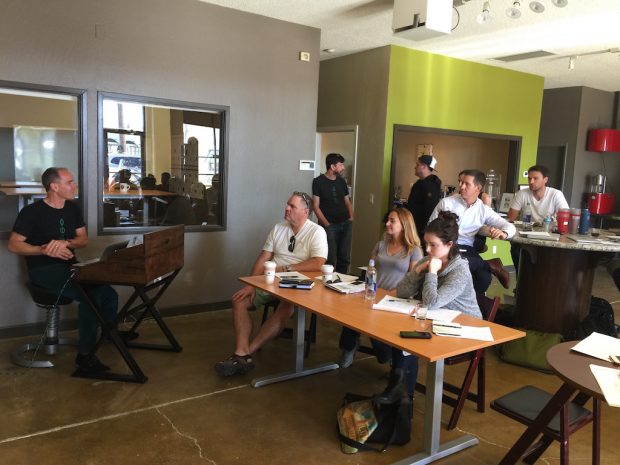
Willem Boot leading a course at the new Boot Coffee Campus in San Rafael, Calif. All images courtesy of Boot Coffee.
Boot Coffee hiked forward this past summer, as the longtime professional coffee training outfit and consultancy moved into a new North Bay headquarters in San Rafael, Calif.
The move precipitated a facility name change from Boot Coffee Camp to Boot Coffee Campus, and the new headquarters’ boot-print, so to speak, allows for some 2,000 interior square feet of training space, including an SCAA-certified cupping lab, a large open area for classes and events, and a roaster training area with no fewer than six machines of various sizes.
The larger facility has allowed Boot to greatly expand its program offerings, and currently available classes include SCAA Pathways courses such as Level 1 and 2 certifications in roasting, green coffee buying, coffee tasting and barista training. The cupping lab allows for Q-grader training and certification, while Boot also maintains online courses.
To complement the expanded facilities and programming capabilities, Boot founder Willem Boot — whose career in coffee has included professional roasting, cupping and even Geisha coffee farming at his Panamanian farm Finca La Mula — has brought aboard experienced green buyer, cupper and trainer Marcus Young to serve in the new role as Boot senior trainer and quality advisor.
“I first connected with Willem at SCAA leadership summits and hit it off and we continued having conversations about coffee,” Young said of his joining the Boot team after several years with Portland, Ore.-based importer Sustainable Harvest.
A good portion of Young’s career has been in training and education, where he’s seen tremendous growth within the coffee industry over the past decade.
“Some years ago when I started, it was a lot of education that was just coming from a café owner or maybe a wholesale roaster,” Young said. “It’s become a lot more formalized in a lot of ways and I think in some ways it started with the Q-grader system and training cuppers. From there, various coffee schools started opening up and started teaching their own style, but as the SCAA started with the guilds — the barista guild and the roasters guild — that’s when it really took off.”
With the impending unification of the SCAA and SCAE, as well as the proliferation of SCAA-certified labs popping up throughout the U.S., Boot said the new facility is designed to be flexible enough to adapt to ongoing changes in formalized coffee education.
“Boot Coffee had a certified lab already, but this is really the scaling of all of that,” Young said. “Definitely by building the campus we realized we had more opportunity to offer the certified courses.”
The roasting area alone includes three Giesen commercial-grade roasters up to 6 kilos, two San Franciscan 1-pound roasters, a Sonafresco sample roaster, a custom two-barrel sample roaster and a Golden Coffee Box home roasting machine. There are color meters, bean moisture and density analyzers, and TDS measuring equipment, while available grinders include Mahlkönig EK43s, Mahlkönig V18xs and multiple Mazzers for espresso. Available brewing equipment includes a La Marzocco Linea PB and Strada EE, a Curtis G4 ThermoPro, Chemex, Hario, Kalita and other manual brew devices.
Naturally, none of this equipment works quite right without steady, experienced hands upon it, which is where the Boot training team comes in. The company plans to expand its barista training offerings soon, while Young said equal attention is paid to other parts of the seed-to-cup journey. For example, Boot’s deep connections to various coffee producers allow the company to easily facilitate the Roasters Level 2 Pathway course that requires a trip to origin. Boot is already planning trips to Panama and Rwanda in the coming months, while Ethiopia and other countries of origin will follow.
“Boot Coffee has always been more about the lab and cupping and some of the more technical things,” said Young, “but we’re really about the whole journey.”
Nick Brown
Nick Brown is the editor of Daily Coffee News by Roast Magazine.
Comment
1 Comment
Comments are closed.



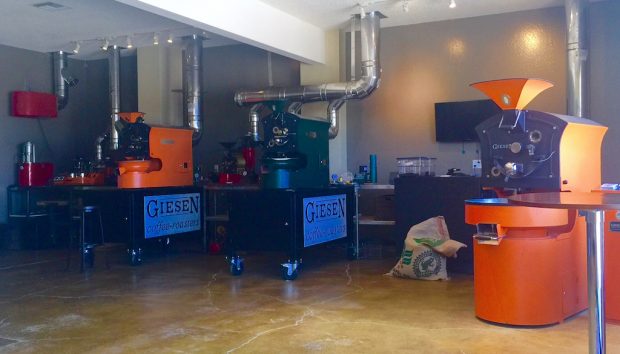
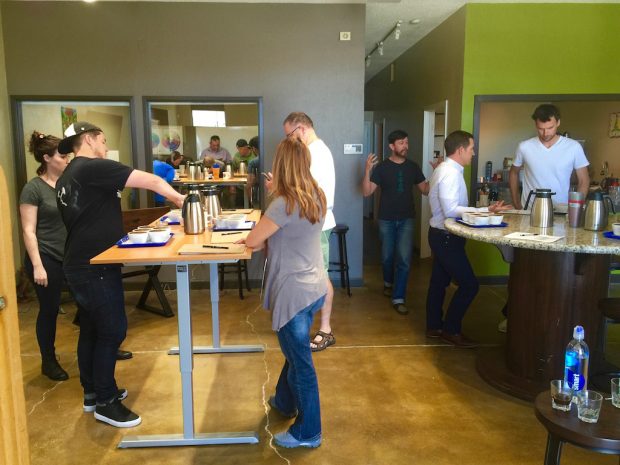
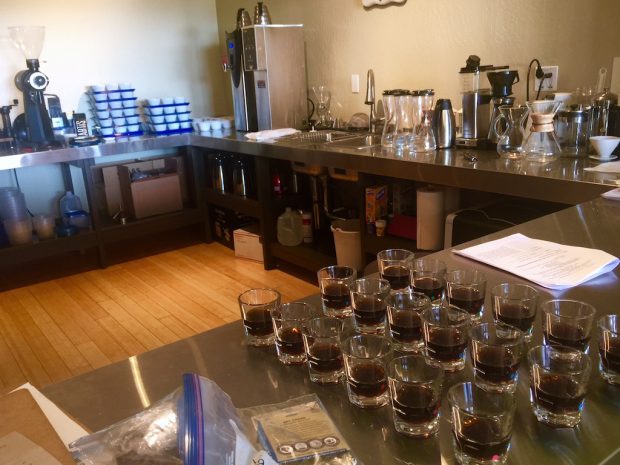
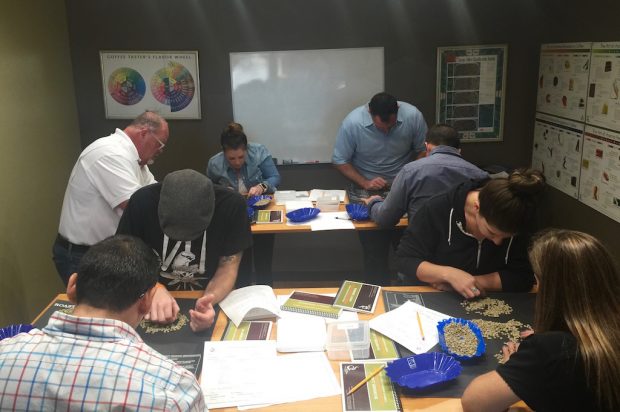
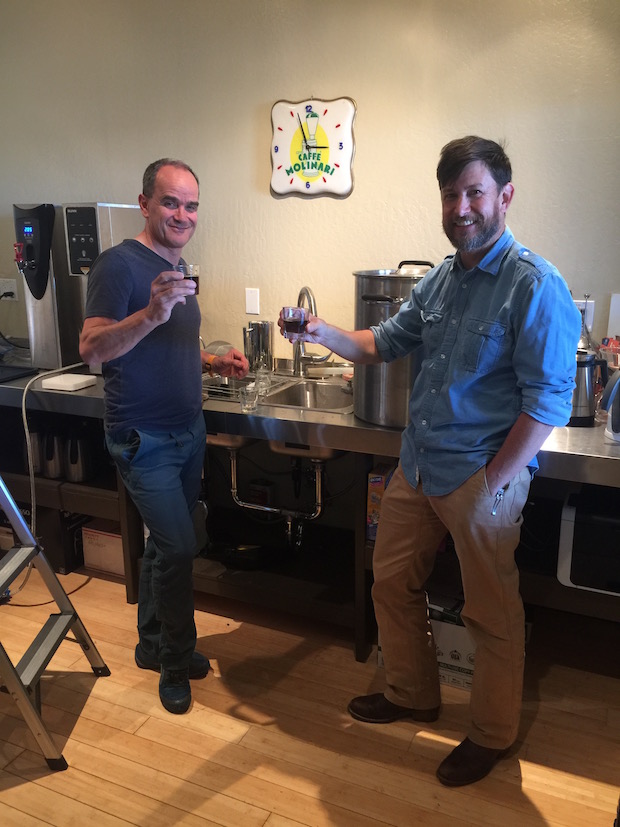



Hi All,
I know Willem when he was helping to improve & promote Ethiopian coffee at the original home. There are a lot untapped coffee resources in the country. Every stakeholder in the industry should work together and share the benefits of the outcomes genuinely. Most of the stakeholders in the industry are working on the market side neglecting the production and the processing parts. Due emphasis should be given to these two sectors. Quality destructed in production and pocessing will never improved in any other way. Once the inherent quality is lost never gaineg by other means.